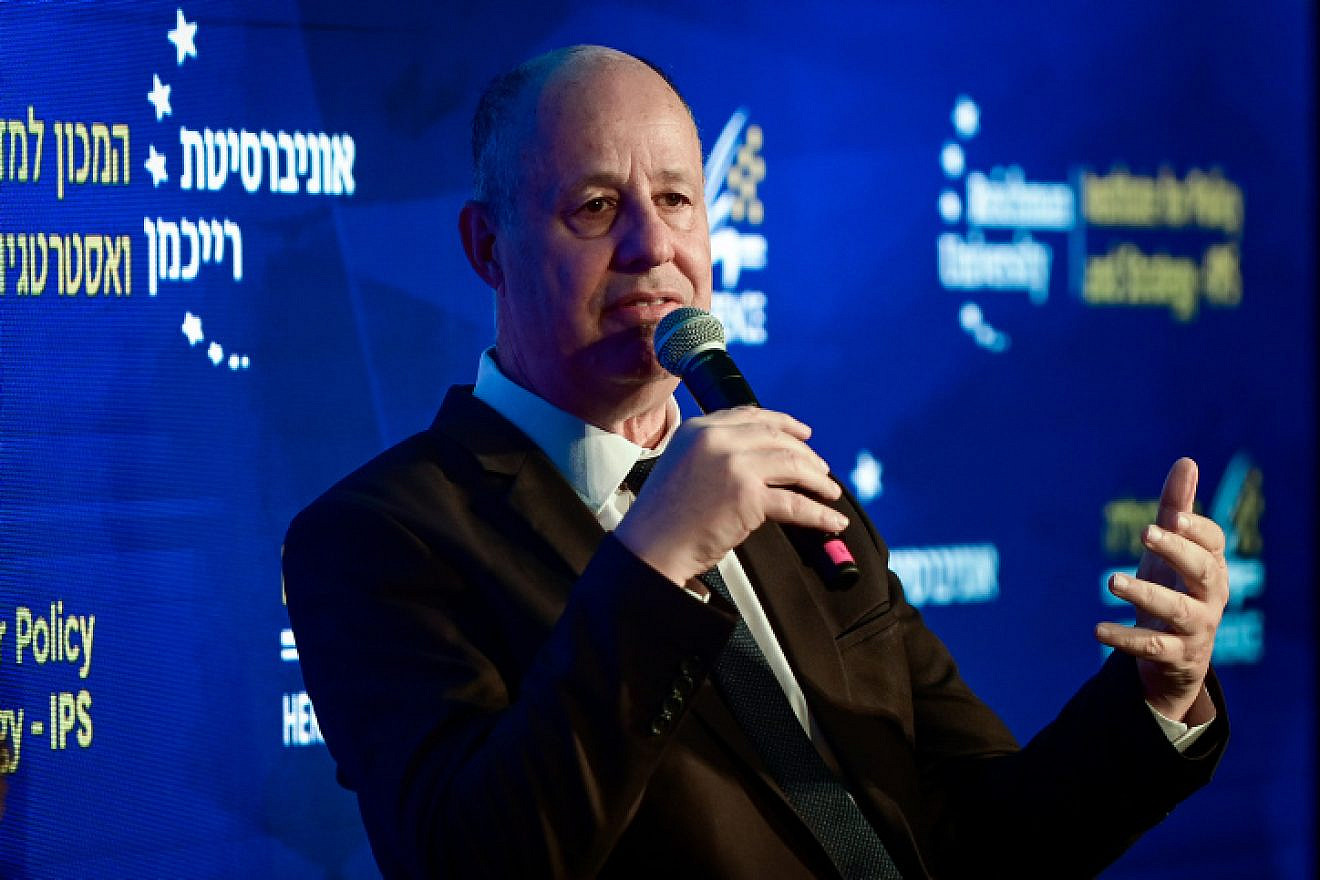The war against Hamas terrorists in the Gaza Strip will last at least until the end of the year, Israeli National Security Adviser Tzachi Hanegbi declared on Wednesday.
“We expect another seven months of fighting in order to deepen the accomplishments and achieve what we have defined as ‘the destruction of the governmental and military capabilities of Hamas,’” said Hanegbi.
The former Cabinet minster stressed that Jerusalem has no choice but to act in Gaza’s southernmost city of Rafah and stop Hamas from smuggling weapons, funds and terrorists into the Strip from Egypt’s Sinai.
“No one will volunteer to look after us, and we will have to look after ourselves,” Hanegbi said in the interview with Kan Reshet Bet radio.
Both Egypt and the Ramallah-based Palestinian Authority have rejected Israeli proposals to reopen the Rafah Border Crossing and manage its operation jointly.
Israeli ground forces entered Gaza on Oct. 27 following weeks of airstrikes in response to the Oct. 7 Hamas attacks, in which terrorists murdered some 1,200 people, wounded thousands more, and abducted more than 250 men, women and children to Gaza.
The IDF took control of the Gaza side of the Rafah Crossing on May 7. A day earlier, Israel’s War Cabinet decided unanimously to “continue the operation in Rafah to exert military pressure on Hamas in order to promote the release of our hostages and the other goals of the war.”
The Rafah operation, which Israel estimates will last around two months, is being carried out in phases as opposed to a full-scale invasion. The phased nature of the operation allows for it to be paused should a hostage release deal be reached between Israel and Hamas.
Commenting on Jerusalem’s efforts to bring about a deal to release the remaining 125 hostages held in Gaza, Hanegbi stressed on Wednesday that “the prime minister, the minister of defense, and the Cabinet unanimously approved activities that carried the risk of casualties.”
Prime Minister Benjamin Netanyahu also “expanded the scope of the [negotiation] mandate; Israel had to erode its position so much that the Americans now say that the Israeli offer is very generous,” he said.
Hanegbi added, “We meet with the families [of those held in Gaza] and talk to them. It’s a nightmare that you can’t even imagine. It’s hard for us to understand the intensity of the nightmare that the families are experiencing. There are 125 people we need to bring home. We deal with this every day.”
Israel’s War Cabinet has approved updated guidelines for its negotiation team, and a delegation led by Mossad head David Barnea returned from Paris Saturday, where they agreed with counterparts to resume talks.
In December, Hanegbi warned that a war with the Hezbollah terrorist group in Southern Lebanon was likely after the defeat of Hamas in Gaza.
“We can no longer accept [Hezbollah’s elite] Radwan Force sitting on the border. We can no longer accept [U.N.] Resolution 1701 not being implemented,” he added, referring to the 2006 Security Council resolution that bars the Iranian terrorist proxy from maintaining a presence south of the Litani River, which is located some 18 miles north of Israel.
Over 60,000 Israelis from more than 40 communities located within 6.2 miles of the Lebanese border have been internally displaced since Hezbollah joined the war in support of Hamas on Oct. 8.























